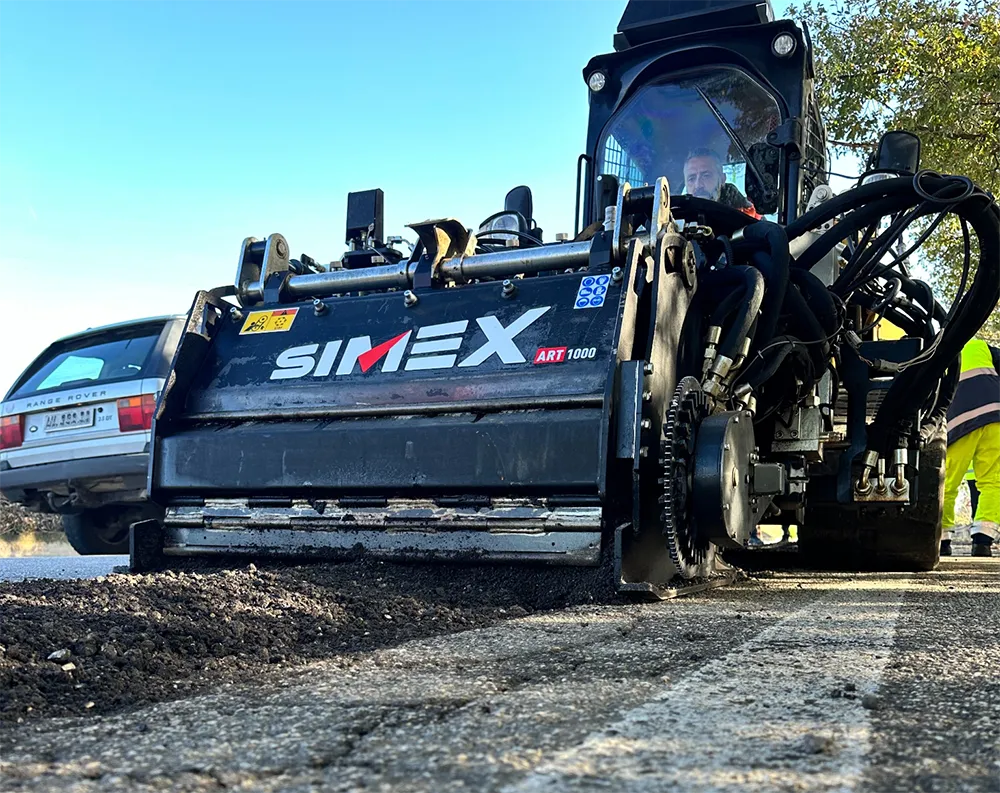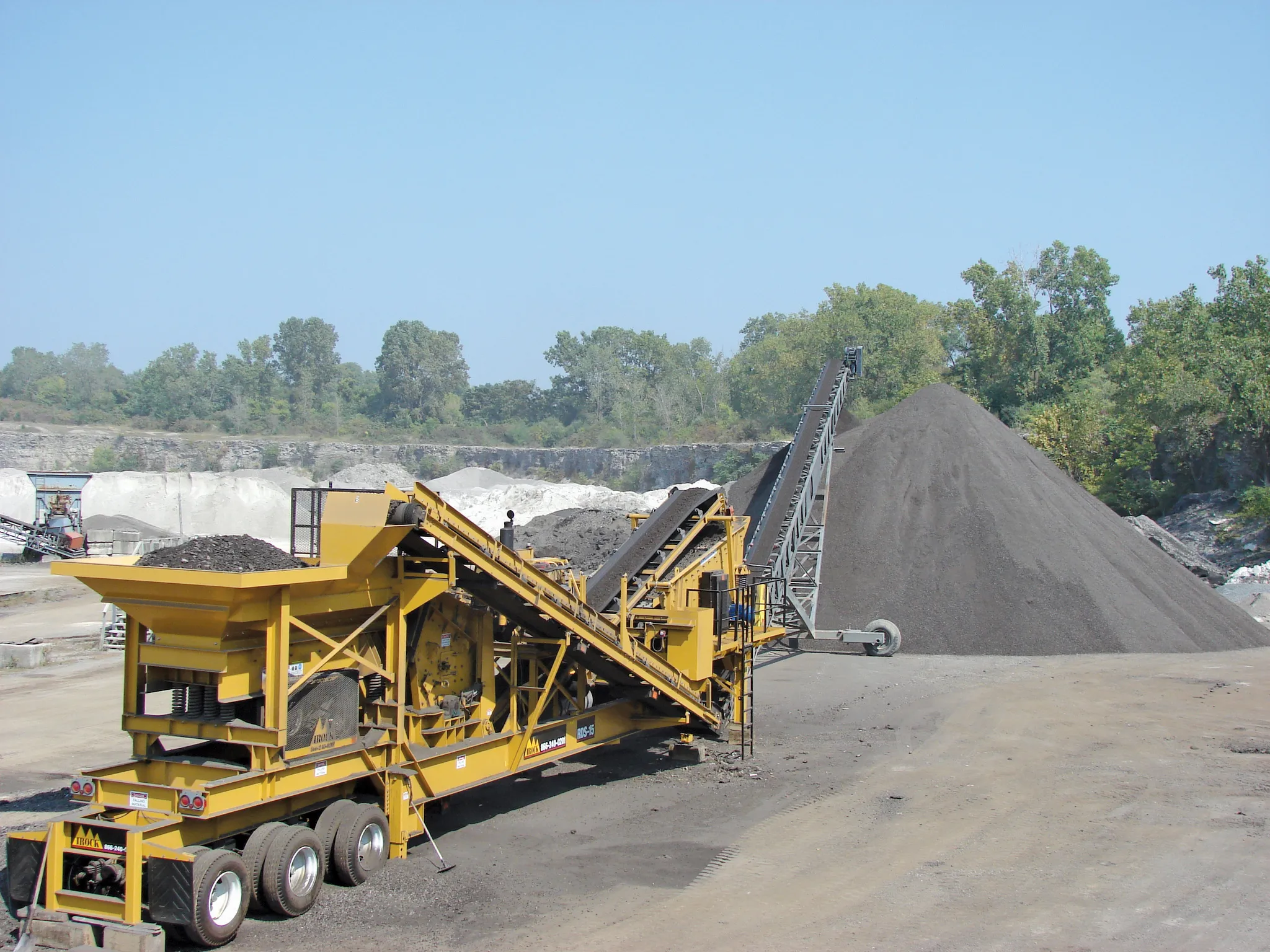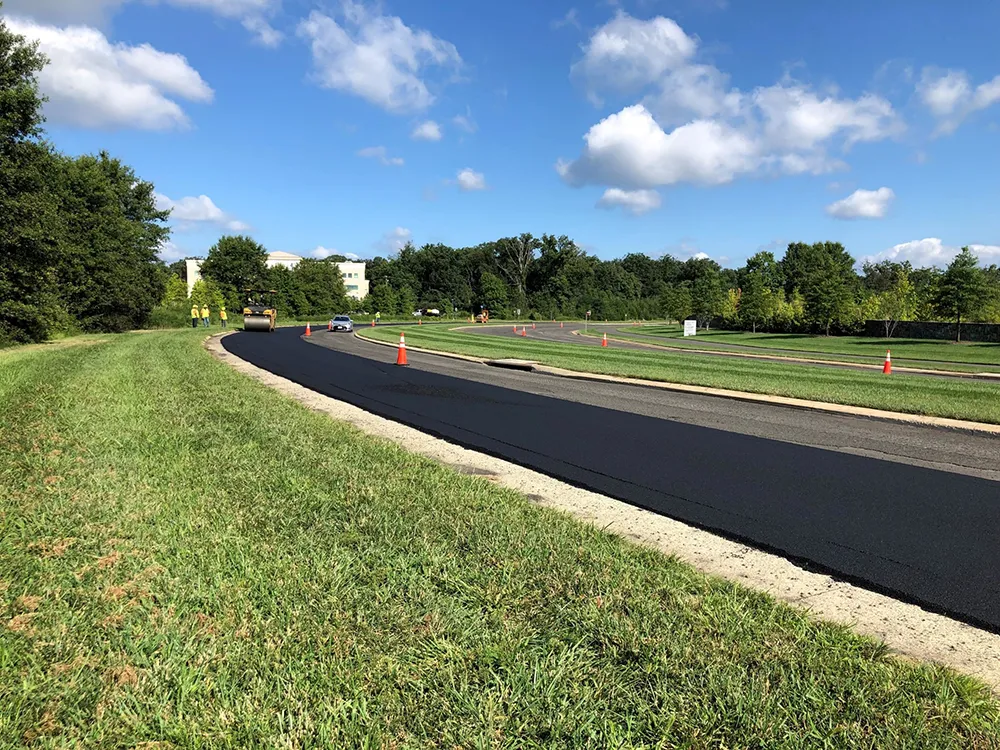
Simex has released the new GEN II version of its ART 1000 patented technology for in-situ regeneration of deteriorated asphalt.
Simex ART technology focuses on surface-level interventions for the functional recovery of road deterioration. It does not require the removal of milled material or the addition of virgin bituminous mix, instead utilising only the existing on-site material. Most importantly, it avoids the complete interruption of vehicular traffic, ensuring the road is immediately passable after restoration.
During the milling phase, the equipment uses an eco-friendly chemical rejuvenator to cold-recycle the bituminous aggregate produced. Specifically, ART consists of two drums: the first for milling and mixing, and the second for crushing and disintegration.
In its working phase, the ART 1000 combines the following processes: milling of the deteriorated road section; controlled injection of rejuvenators proportional to the working depth and the carrier's speed; reduction of the milled material to the correct grain size; and final mixing to create the recycled bituminous mix ready for compaction
After regeneration, the bituminous mix is deposited directly into the milled track and is ready to be levelled and compacted with a roller or vibrating plate.
Simex says that, as in the case of repairs after the installation of fibre optics, the presence of cement mortars in limited proportions compared to the total volume of milled asphalt does not compromise the success of the final restoration.
The Italy-based company adds that, in addition to the logistical advantages on-site and in terms of traffic flow, the ART 1000 technology offers other key benefits. These include reduction of costs associated with the purchase and transport of new raw materials, utilizing exclusively the bituminous mix available on-site, the recovery and regeneration of 100% of the on-site material, and fast and durable surface restoration.
In the past year, Simex has enhanced the onboard electronics of the ART 1000 to better meet the daily needs of road construction sites.
The onboard electronics have been further developed with the addition of a new video interface to improve connectivity between the operator and the ART 1000 technology. This interface displays real-time values such as linear meters (progress), litres per metre (additive dosage), and actual litres (additive consumption). It is possible to manually set a precise amount of rejuvenator (with a sensitivity of 0.1 l/min) according to the manufacturer's specifications and the site's environmental conditions.
The 100-litre rear tank is now removable from the side, and thanks to a drainage cap located at the bottom, it can be easily emptied if necessary. Additionally, the lateral movement of the tank allows access to the second drum compartment (crusher) from above, for cleaning and maintenance.
The grille that determines the correct grain size of the material exiting under the second drum is also easily removable from the side for proper maintenance and cleaning at the end of the day. The removable tank and grille have been designed to ensure safe and easy access to the crusher drum of the equipment.









